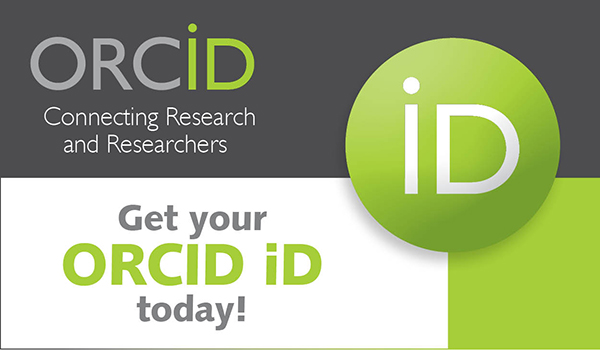If you need any assistance, please write to glus@jgu.edu.in
In scholarly publishing, attributing right papers to right authors is not an easy task. Because, names of the scholarly authors are not unique. 'There are approximately 200,000 people per unique surname in China.' [REF] 'Close to 85% of China’s population have one of only 129 surnames, and three names in particular, viz. Wang, Li and Chen, are predominant among authors publishing currently. Among Korean authors, Kim and Park account for a large percentage. In India there are many Agarwals, Guptas, Mukherjees, Raos, Sharmas and Singhs among publishing authors.' [REF]
ORCID initiative < https://orcid.org/>, a collaborative effort of publishers, research funders and institutions, aims to resolve the author name ambiguity problem in scholarly communication. ORCID provides a unique 16-digit identifier [e.g. https://orcid.org/0000-0003-1651-4180] for researchers who register with ORCID platform. ORCID is non-proprietory and there is no fee involved in getting an iD.
Many journal/book publishers have integrated ORCID in their workflow and authors are asked to submit their ORCID iD along with the manuscripts. Also, grant funders are increasingly mandating researchers submit their iD during proposal submission.
ORCID registry has more than 15.7 million iDs created by researchers from all over the world. (See: Statistics, data as on December 2022.)
ORCID registry has more than 15.7 million iDs created by researchers from all over the world. (See: Statistics, data as on December 2022.)
ORCID enables disambiguation between two or more researchers with the same name.
Researchers can connect their ORCID iDs with their professional information — affiliations, grants, publications, peer review, and more.
ORCID iD enhancess discoverability of research as the iDs are indexed by famous databases such as Scopus.
To know the benefits of ORCID more: “Adopting ORCID as a Unique Identifier Will Benefit All Involved in Scholarly Communication”
Researchers can connect their ORCID iDs with their professional information — affiliations, grants, publications, peer review, and more.
ORCID iD enhancess discoverability of research as the iDs are indexed by famous databases such as Scopus.
To know the benefits of ORCID more: “Adopting ORCID as a Unique Identifier Will Benefit All Involved in Scholarly Communication”
